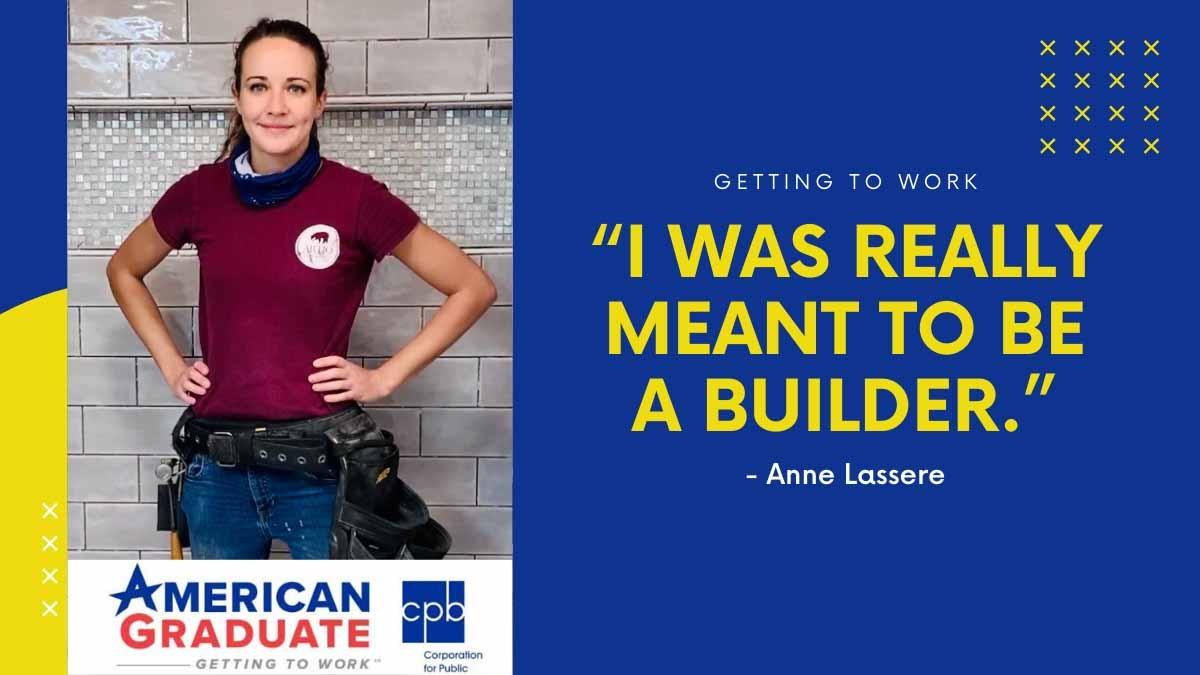“Growing up it never occurred to me that I could be involved in a trade,” recalled Anne Lassere, a carpenter who works in Charlottesville, Virginia. “That’s just not something that girls did or were encouraged to do. I always thought that I would go to college.”
She did go to college, but found it wasn’t a good fit for her, so she made a difficult decision to leave school.
“I really grappled with that because I think that there’s a societal expectation that we should go to college, we should hit these certain mileposts,” she said. “I felt like I was going off the beaten path, and I did feel pressure from my friends and family to try to go back toward the college route.”
After leaving college behind, she found her true passion.
“In my free time I went through dozens of notebooks of graphing paper sketching out floor plans for cabins, all kinds of things, like furniture,” she said. “So I was really meant to be a builder.”
After researching her options, she found a carpentry apprenticeship program that would pay her — instead of leaving her in debt— for the four years of education she required.
“It’s a full-time job and it’s a four-year program,” she explained. “You start your first year with a lower salary. By the time that you graduate you’re paid as a journeyman.”
Any pressure she felt from family to return to college soon faded as they saw the potential of working in a trade. “Once they saw that I had a chance of being successful with the trades route — and actually I’ve become more successful than some of my family members who took the college route— they stopped bugging me about it,” Anne said.
She said the benefits for her outweighed those found in a typical journey through college and set her up for success better than graduating with a degree would have. “It’s almost the equivalent of a four-year degree in some ways because the programs are usually four years themselves, and you get a certification at the end,” she explained. “You are licensed through the state to be journeyman in whatever your trade is, so it’s very similar to having that kind of qualification that a degree offers, and yet you’ve made money instead of going into debt.”
And making money is something she has continued to do after finishing the program. She is now an in-demand carpenter and Class B Licensed Contractor who specializes in home improvement. And she has a steady stream of jobs. She said at one point in her career she had to take down her website because she was staying too busy to take on additional work.
“There’s just so much demand out there,” she said. “If you come to the table as someone who is reliable and tries to present good craftsmanship in the trade, the demand is endless.”
If you are interested in learning about skilled careers, visit the Resources page of our website to find listings of local apprenticeship programs and training opportunities.
Learn more about carpentry.



